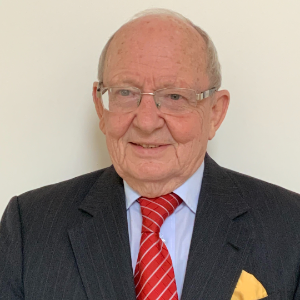A UCD initiative
The INTERACT-EUROPE project, funded and promoted by the European Commission under the EU4Health programme, introduces a novel approach to the training of cancer specialists. Included in its recommendations are that (i) doctors undergoing specialist training in cancer surgery (surgical oncology), radiotherapy and medical oncology should spend some time in each of the other two specialties and (ii) a cross-disciplinary or inter-disciplinary curriculum should be developed to enhance the scope and quality of existing cancer training programmes. The curriculum should be applicable to the nursing profession and to other disciplines within medicine.
In 2016, Professor Niall O’Higgins, Professor Emeritus of Surgery UCD, proposed to the Expert Group on Cancer Control of the European Commission (EC) that a period of time spent in active clinical rotation to each of the other two disciplines would be a valuable addition to the training of all specialists in the fields of medical oncology, cancer surgery (surgical oncology) and radiotherapy. The proposal was accepted by the EC and later incorporated in Europe’s Beating Cancer Plan in 2021.
A consortium of 33 partners from 17 European countries involving specialist medical and nursing cancer groups, cancer centres and patient advice representatives was convened by the European Cancer Organisation. A bid to design a suitable interdisciplinary training curriculum was successful and €5 million euro was made available by the EC. An internationally agreed multi-specialist Screening Committee, co-chaired by Professor O’Higgins, was appointed. Known as INTERACT-EUROPE, an interdisciplinary training curriculum, applicable to medical, nursing and allied professions, was developed and published.
Following the widespread approval of the INTERACT-EUROPE, the EC supported the second phase which consisted of an implementation plan, called INTERACT-EUROPE 100, designed to recruit and establish the curriculum in at least 100 cancer centres, hospitals and accrediting trading bodies across the EU and beyond.
Some €9 million euro was made available for this phase of the programme, running from January 2024 to December 2025. An active recruitment process, based on existing internationally agreed clinical and administrative criteria is currently underway.
It is emphasised that INTERACT-EUROPE 100 does not in any way seek to displace or supplant existing cancer training programmes; the intention is to add a component of cross-disciplinary knowledge, understanding and communication that will lead to better care of patients.
As the organisations responsible for the supervision and accreditation of medical specialists in Ireland, the Royal College of Surgeons in Ireland, the Faculty of Radiology and the Royal College of Physicians of Ireland, together with those hospitals designated as specialist cancer treatment and training centres, will be actively involved in defining and arranging details of this important innovation.
It is hoped that once the centres have been approved and the curriculum and inter-disciplinary rotations established, a standardised EU-wide accreditation process can be put in place. Such an arrangement would allow trainees to spend short periods of time during training in approved centres throughout the EU in a system akin to the ERASMUS programme.
The progress, conclusions and international acceptability of INTERACT-EUROPE 100 will be awaited with keen interest when this phase of the programme is completed in December 2025.
 The initiative has been welcomed with enthusiasm among the Member State and by MEPs of the EU. It is being administered with great skill and care by the European Cancer Organisation. There is a significant degree of international support for this UCD-generated enterprise.
The initiative has been welcomed with enthusiasm among the Member State and by MEPs of the EU. It is being administered with great skill and care by the European Cancer Organisation. There is a significant degree of international support for this UCD-generated enterprise.
Find out more.
Professor O’Higgins has been associated with UCD since 1959 as Student, Tutor, Lecturer and Professor and Head of the Department of Surgery (St. Vincent’s Hospital) 1977-2007. He established the first Breast Cancer Clinic in Ireland in 1979 and throughout his career has been involved in developing cancer screening and cancer services in Ireland and in the EU.